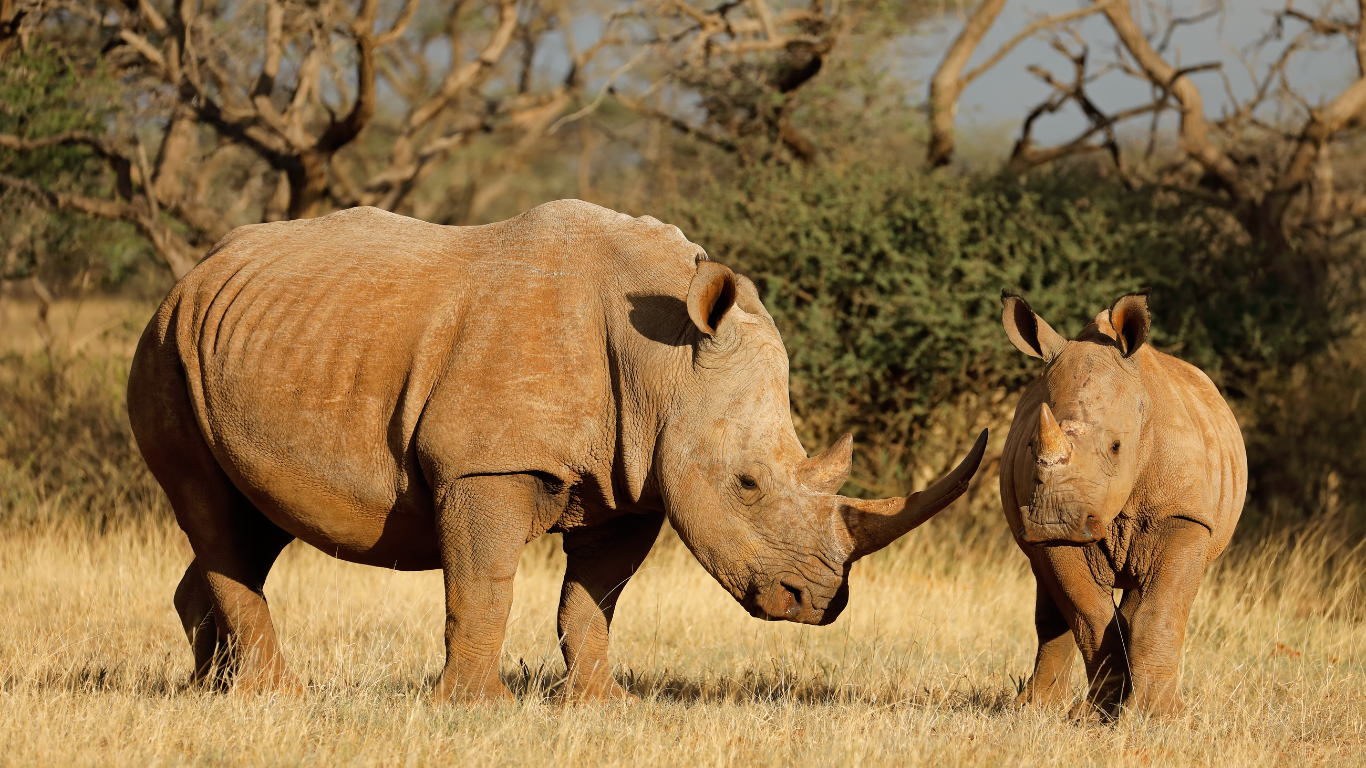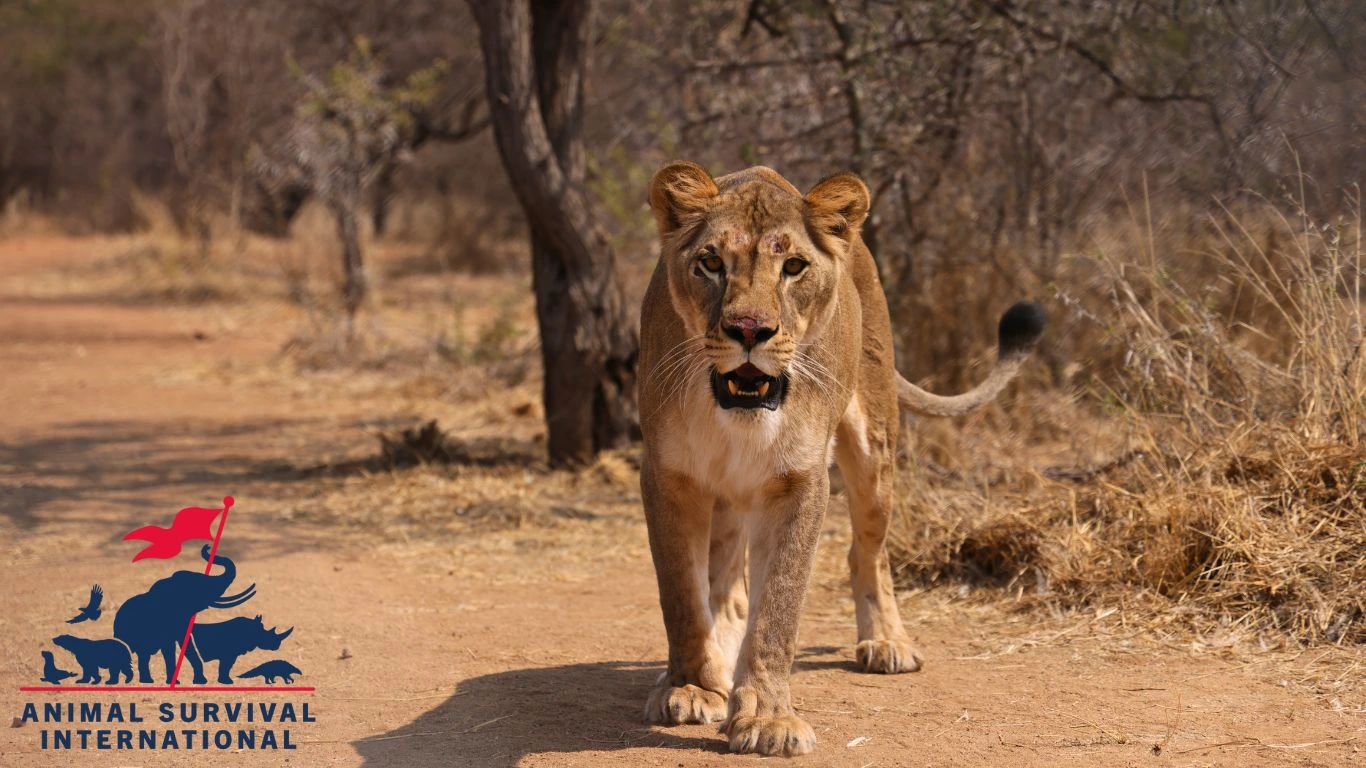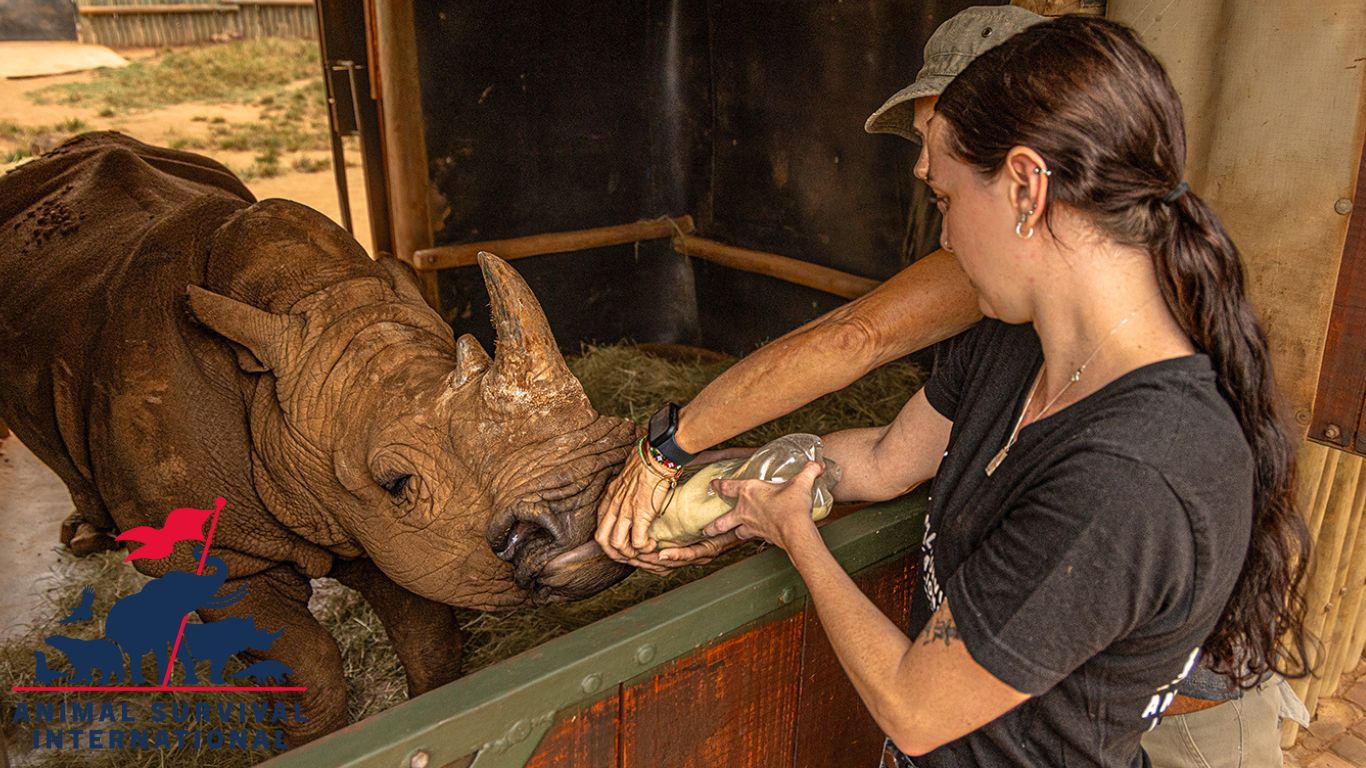20 easy, everyday ways YOU can be greener
In the fight against climate change, every action matters – from the tiniest tweaks you can make right now to larger lifestyle changes you can work towards. Finding your ideal balance of planet-saving habits can make a big difference.
There’s no shortage of advice online about how to “live greener” or cut down your carbon footprint. The catch is that not every option works for everyone. Health needs, cultural practices, budgets, or simply where you live can make things like veganism, organic shopping or public transport challenging to commit to.
The good news is that sustainability isn’t a zero sum game: even small steps add up.
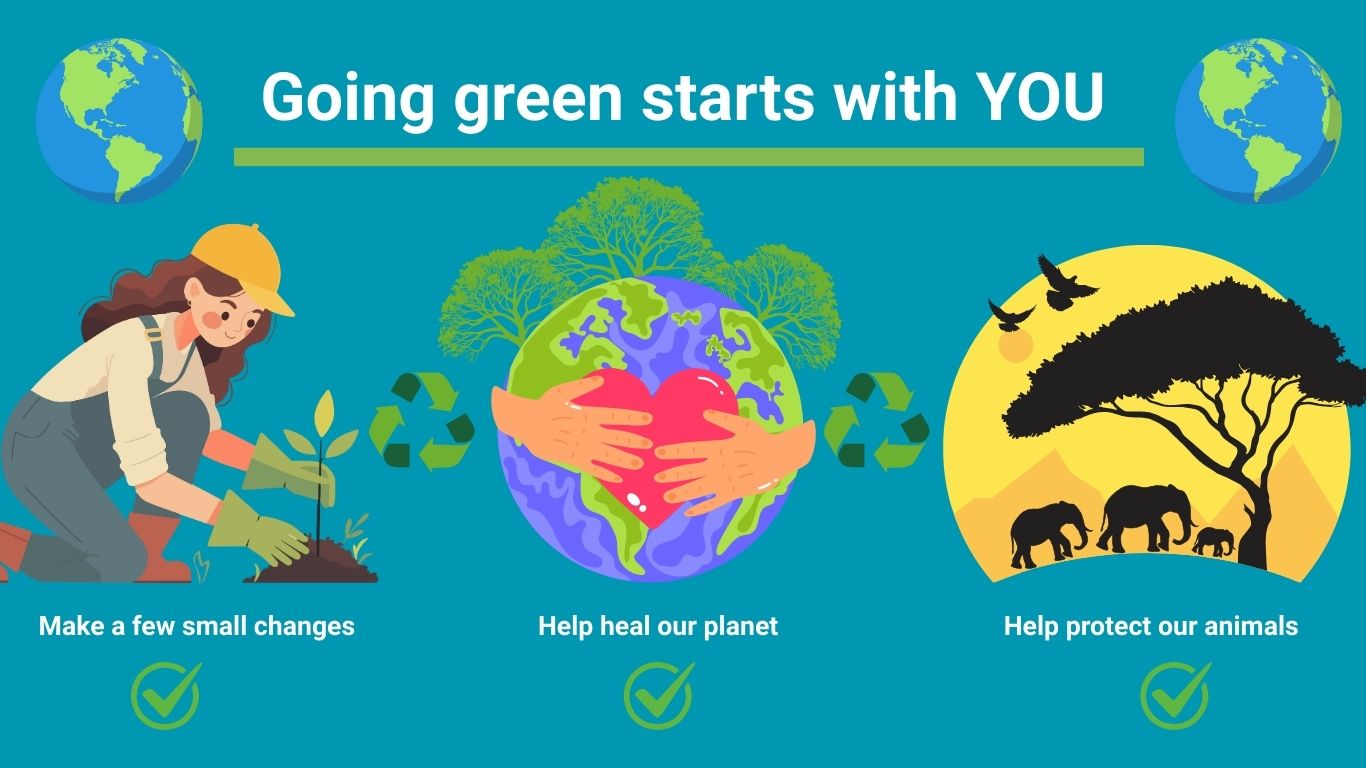
Here are 20 simple ways to lower your carbon footprint that you can implement right now – without making massive lifestyle changes.
Eat responsibly
- Embrace Meatless Mondays. Not all of us can go fully vegan or vegetarian, but even reducing your meat consumption by a little will make a big difference. Dedicate one day a week to meat-free meals – there are thousands of simple, delicious vegan and vegetarian recipes online to experiment with.
- Cut back on beef and dairy. Cows, their feed, and their emissions are among the highest contributors to greenhouse gas emissions. Swapping beef for chicken, fish or pork, and/or reducing cheese and milk consumption, can reduce your carbon footprint.
- Grow your own. A small veggie patch or herb garden helps reduce reliance on agricultural production and cuts down on packaging waste. Plus, it’s a fun and rewarding hobby!
- Compost food scraps.Whether through a home compost bin, a community garden or a worm farm, composting keeps waste out of landfills while creating natural fertilizer (great for that home garden!).
- Shop local when possible. Buying from local farms and markets, or choosing organic if accessible, supports sustainable producers and reduces transport-related emissions.
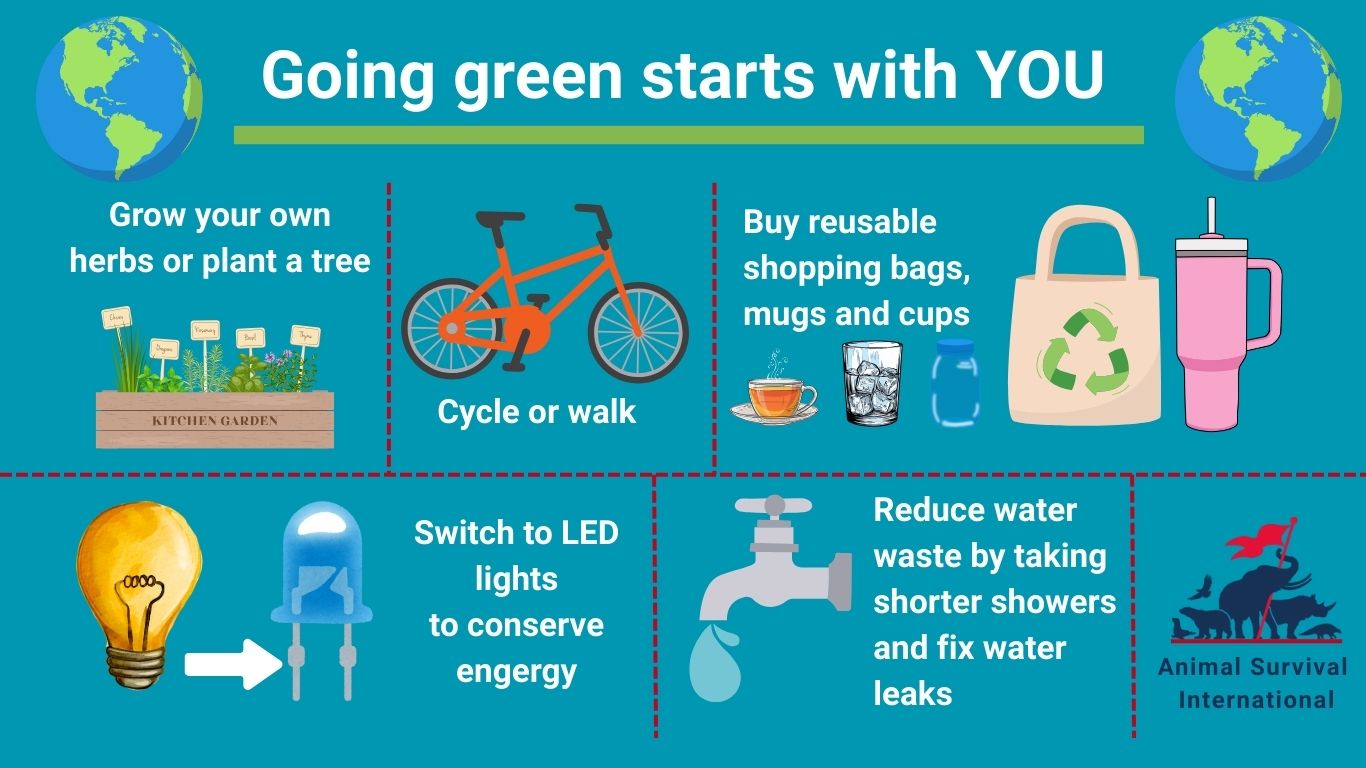
Minimize your energy usage
- Unplug and power down. Switch off plugs and appliances when not in use. Water heaters don’t need to run 24/7. Turning them off for a few hours saves energy and money.
- Avoid energy-intensive heating. Instead of running heaters or air conditioners all day, layer up, use a hot water bottle, or only run them long enough to warm the room.
- Upgrade lighting. Switching from old filament bulbs to LEDs reduces energy use and cuts costs.
- Air-dry clothes. Hanging laundry up to dry instead of using a tumble dryer (especially in summer) cuts energy usage and saves you money..
- Consider solar. If it’s an option, investing in solar power is one of the biggest long-term energy-reduction changes you can make.
Travel light
- Choose public transport. If it’s an option in your area, using public transport instead of driving can dramatically reduce fuel emissions.
- Organise carpools. Where public transport isn’t available, sharing lifts with friends, colleagues or neighbours can cut down on fuel use and emissions (just think – if you share a ride with two friends, that’s two less cars on the road!).
- Walk or cycle when safe. Even short trips done on foot or by bike instead of by car add up over time.

Make small, easy lifestyle changes
- Reuse, repair and recycle. Before tossing something out, see if it can be repurposed, fixed or donated.
- Buy second-hand. Thrift stores and online marketplaces offer affordable, eco-friendly alternatives to new purchases.
- Switch to reusables. Invest in reusable water bottles, coffee mugs and shopping bags. Many cafés reward you for bringing your own cup, and water refill stations make it easy to cut down on single-use plastics.
- Choose refills. Opt for refillable detergent bottles, cleaning products and toiletries instead of buying new packaged items every time. Not only does this reduce plastic waste, but it also saves money in the long run.
- Choose eco-friendly products. Support cruelty-free, sustainable brands whenever you can. A quick Google search of any brand will tell you if it’s environmentally friendly and cruelty free. If it isn’t, choose a different option if you can.
- Reduce water waste. Take shorter showers, fix leaky pipes, water your lawn at cooler times of day to reduce evaporation, and never leave the tap running while brushing your teeth.
- Plant native species. If you have a garden or balcony, growing indigenous plants supports local biodiversity (birds, bees, butterflies and others), while requiring less water and maintenance.

